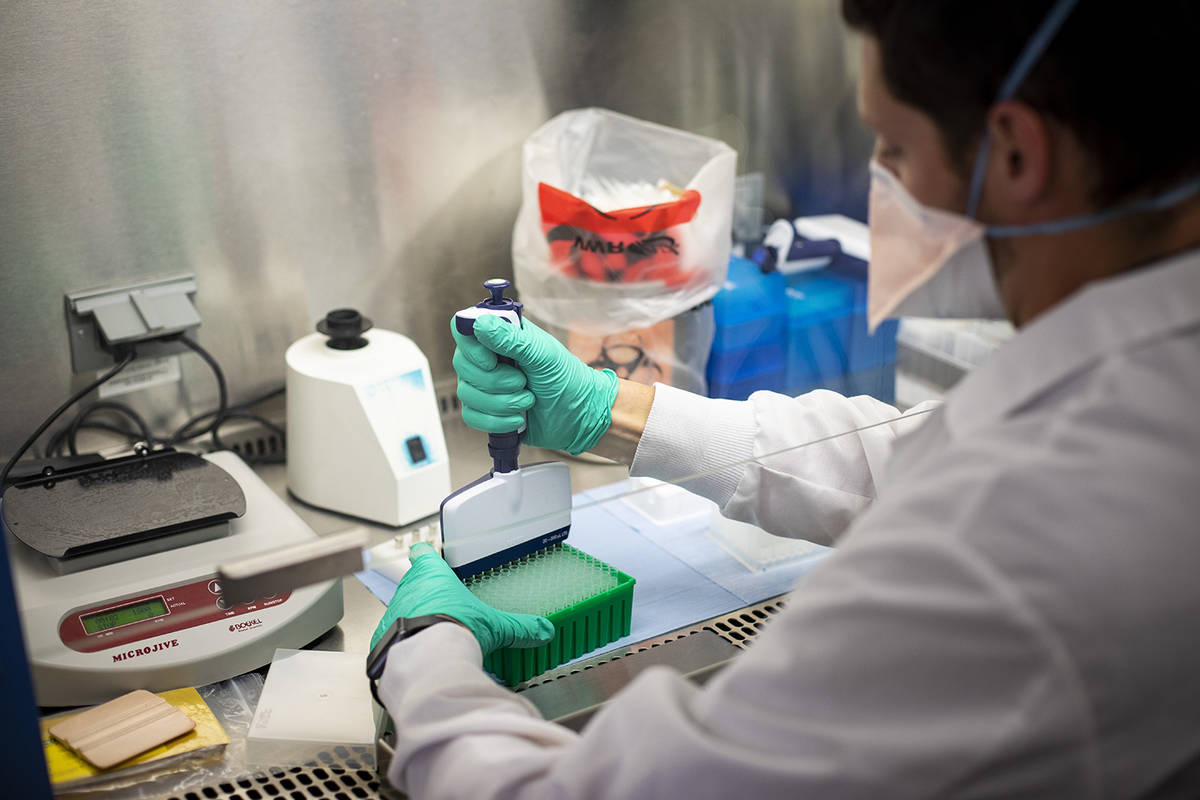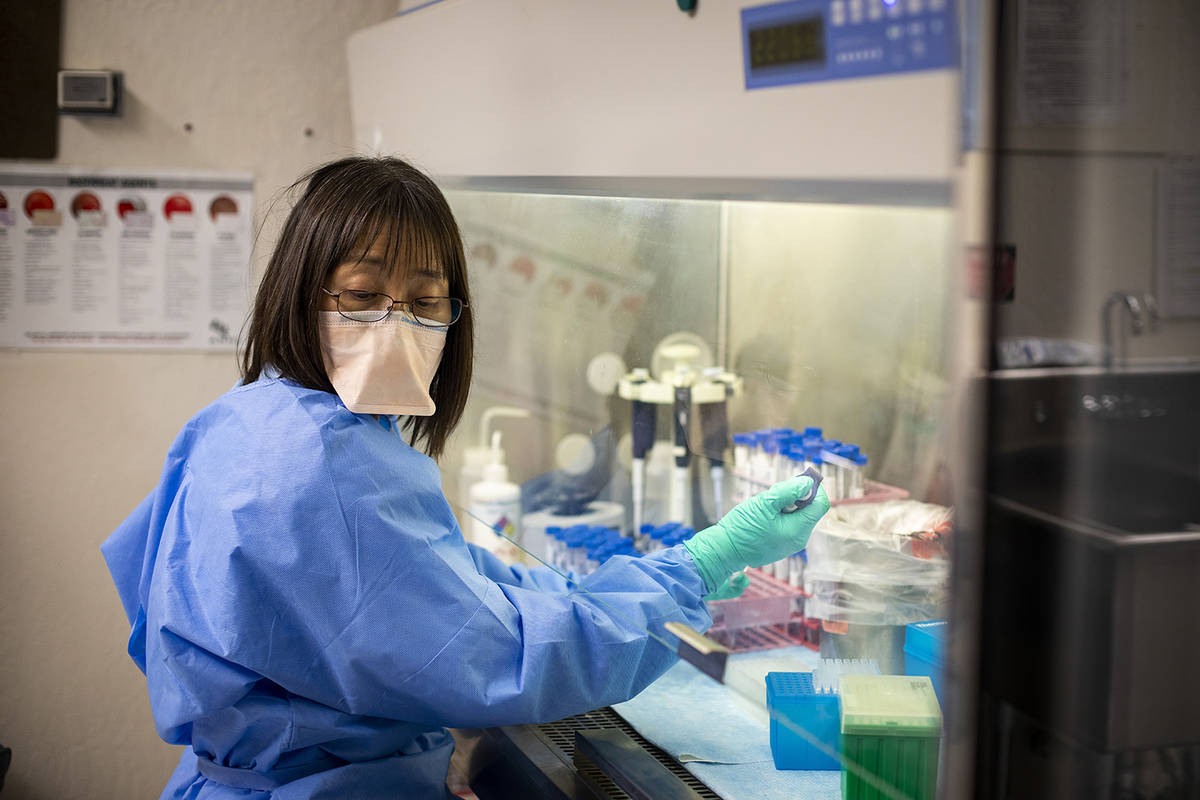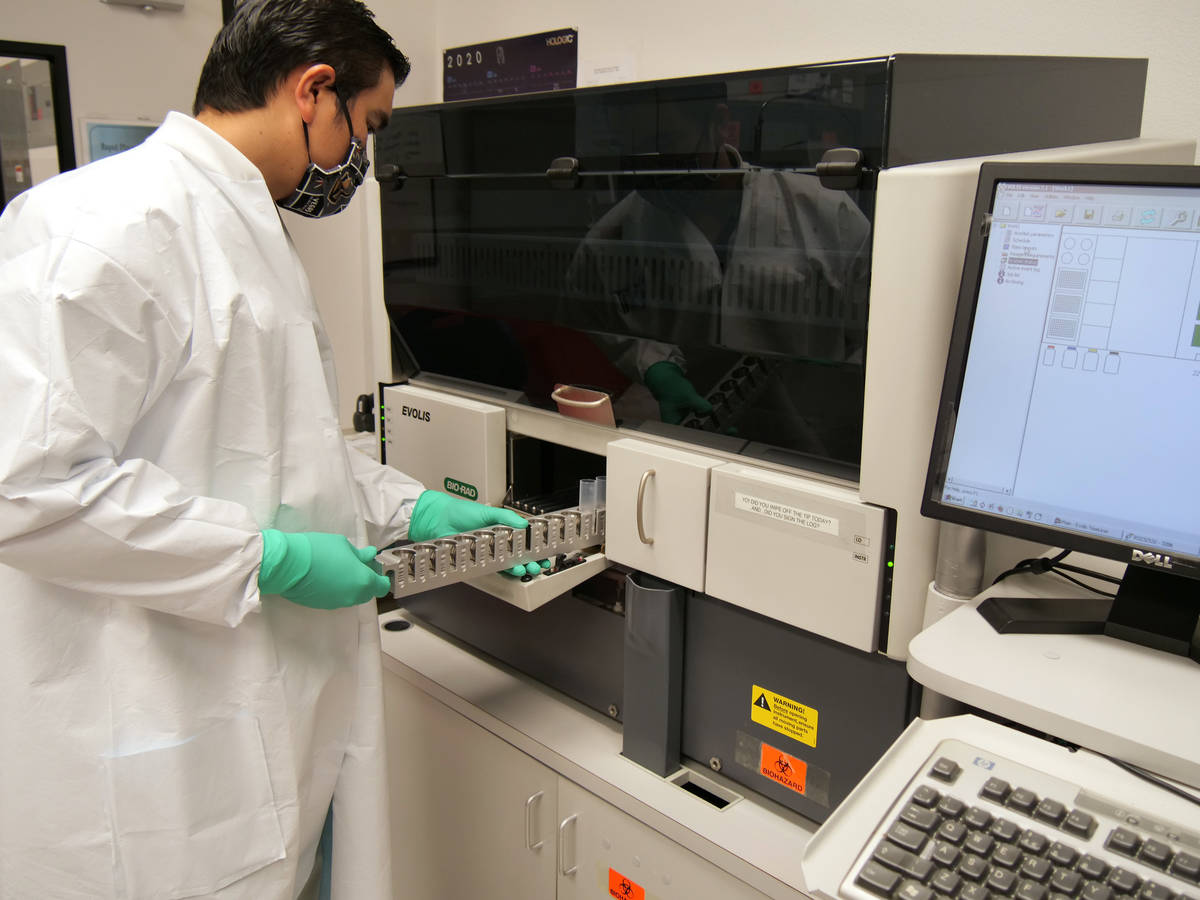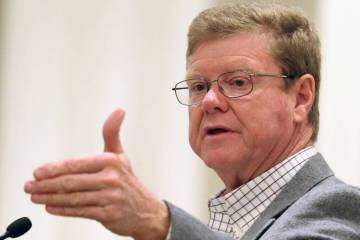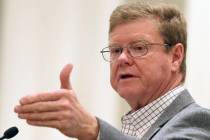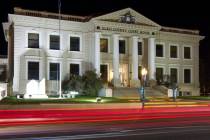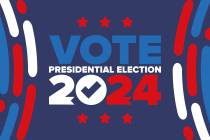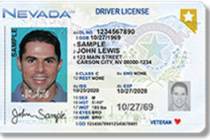State to begin COVID-19 antibody testing in Nevada this month
The Nevada State Public Health Laboratory plans to begin antibody studies this month of those on the front lines of the pandemic and of the general public to better understand what portion of the population has been infected by the new coronavirus and may have developed some immunity.
Unlike diagnostic tests for COVID-19 that determine whether an individual is currently infected by the respiratory virus, antibody tests detect proteins created by the immune system that indicate a previous infection.
By identifying past infection, including in people who showed no symptoms, antibody testing can help create a clearer picture of how many people have been infected and, in turn, enable public health officials to calculate a more accurate rate of death from the disease.
Antibody testing provides “that time-travel element that you rarely get in science,” said Mark Pandori, director of the public lab at the School of Medicine at the University of Nevada, Reno. “We’re going to get a handle on how dangerous this virus was — and is.”
The studies come as policymakers are grappling with the risks of reopening society, with some touting antibody testing as a key to people returning to work. Health care providers have begun to order the tests from private labs, though it’s not yet known whether the presence of antibodies confers immunity and, if so, to what degree and for how long.
The public health lab in Reno plans to launch four or five antibody studies within weeks involving 400 people apiece, each focusing on the general public or on front-line health care workers and emergency responders, Pandori said. The studies probably will be conducted in Washoe County, Northern Nevada’s most populous county.
Getting a better fix on infections
Health officials believe that far more people have been infected than the number of cases confirmed by COVID-19 testing. That’s because many people infected by the virus have mild symptoms or no symptoms at all, and so have not sought out testing.
What’s more, an initial shortage of testing materials meant that not everyone who asked for a test could get one, including many people with moderate and even more severe symptoms.
As a result, a death rate for the coronavirus based off a percentage of those who tested positive amounts to a “fallacy,” Pandori said.
Of the more than 4,600 people who have tested positive for the coronavirus in Clark County, about 5 percent have died. However, the handful of antibody tests conducted around the country would suggest that the fatality rate here, as elsewhere, is much lower.
An antibody study conducted in Los Angeles County, for example, suggested that 40 times as many people had been infected there than the number of confirmed cases, lowering the estimated fatality rate to between 0.1 and 0.2 percent.
Antibody testing results in New York City indicated that as many as one in five residents had been infected, suggesting a fatality rate of 0.5 percent or, if factoring in probable COVID-19 deaths, 0.8 percent.
The death rate from the flu is about 0.1 percent.
A more accurate picture of how far the virus has spread helps communities understand “what challenges lie ahead,” Pandori said.
For its antibody studies, the Reno lab is using a test manufactured by Abbott Laboratories with a 99.6 percent rate of accuracy. Out of 1,000 people tested, four would receive a false positive result.
The test is one of a dozen authorized by the Food and Drug Administration, but more than 100 additional tests of varying quality have flooded the market in the past two months without having undergone review.
“We unfortunately see unscrupulous actors marketing fraudulent test kits and using the pandemic as an opportunity to take advantage of Americans’ anxiety,” the FDA cautioned this week.
Testing in Southern Nevada
The Southern Nevada Health District, meanwhile, is ramping up to provide antibody tests by early June, said Dr. Fermin Leguen, acting chief health officer. Plans have not been finalized, but the agency probably will initially offer the test to the general population and to targeted populations at potentially greater risk of infection, such as the homeless and people in nursing homes.
Some early efforts at antibody testing in Southern Nevada got off to a bumpy start, with state health officials temporarily shutting down a pair of drive-thru testing operations over regulatory issues. Meanwhile, private labs such as Quest and LabCorp have begun offering antibody tests, which can be ordered by health care providers.
UNLV Medicine, the clinical arm UNLV’s School of Medicine, expects to start offering antibody testing to the public later this month. It’s still evaluating what type of antibody test to use, either one where blood is drawn or obtained through a prick to the finger, said Dr. Michael Gardner, the medical school’s vice dean of clinical affairs.
Gardner acknowledged that, like many people, he would like to be tested to satisfy his own curiosity about whether he had been infected. If he tested positive for antibodies, “I don’t know if I would change my behavior, but I think I would worry less,” he said.
Even if he tested positive for the antibodies, he said he would still maintain social distance, put sanitizer on his hands after pumping gas and avoid walking into a crowded restaurant.
And testing “will help people feel more comfortable about getting business open, getting people back to work, those kinds of things,” he said.
But he noted that it’s still unclear what level of immunity the antibodies provide.
“There’s some data and good reasons to think there’s going to be some level of immunity,” Gardner said. “Maybe it’s just for a few years, or maybe, if you get it a second time, you won’t get it as severely.”
He noted that people exposed to the “closest cousins” to the new coronavirus, the SARS and MERS viruses, seem to have developed immunity.
One potential hazard of antibody testing is that some people who test positive may erroneously believe they’re “suddenly invulnerable to the disease,” Pandori said.
He cautioned that a positive antibody test does not mean “you’re immune or invulnerable to this monster.”
Contact Mary Hynes at mhynes@reviewjournal.com or 702-383-0336. Follow @MaryHynes1 on Twitter.



